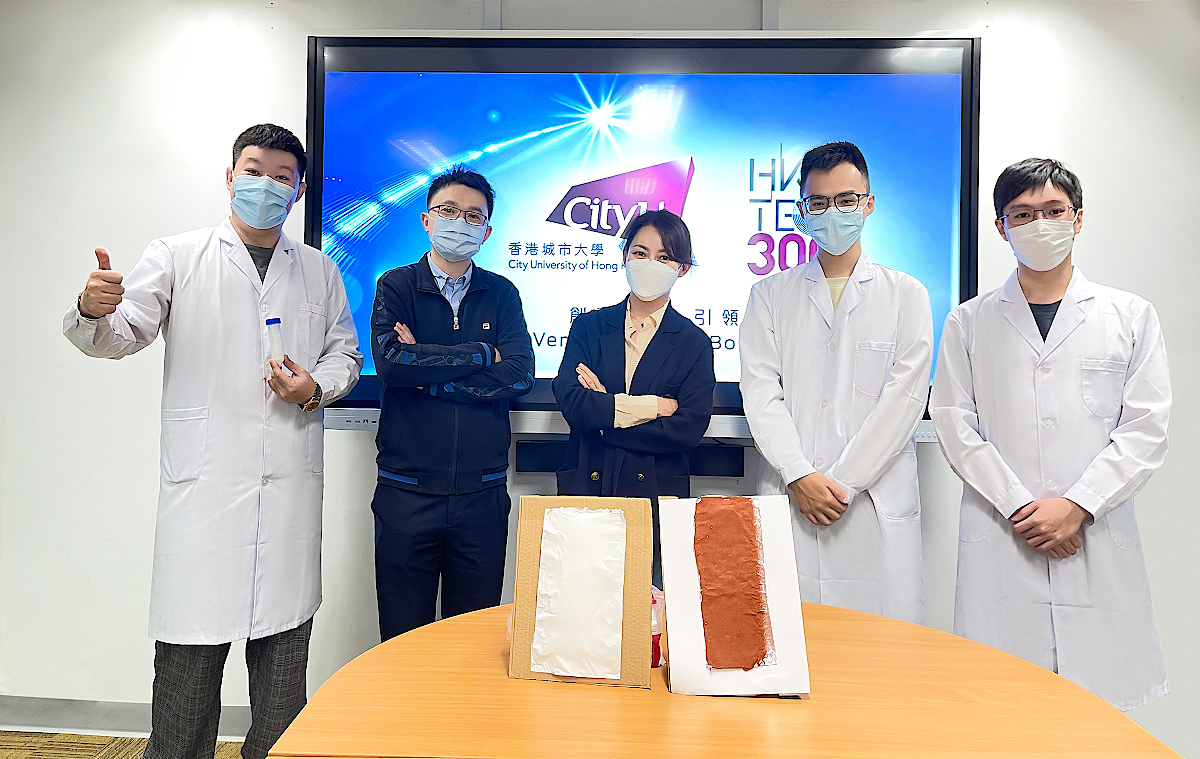Congratulations on winning the HK Tech 300 seed fund!
Congratulations!
Led by Dr. Jiaxin Guo, SEE Postdoctoral Fellow, the project “A Novel Reusable Antivirus Non-Toxic Visible-light Driven Photocatalytic ZIF-8 Loaded Fabric for Air Cleaning” is awarded the HK Tech 300 seed fund. HK Tech 300 is a large-scale flagship innovation and entrepreneurship programme organised by CityU for aspiring entrepreneurs among CityU students, alumni, research staff and others to launch start-ups and ignite their entrepreneurship journey.
About the Team:
Advisors:
Dr. Alicia An, Associate Professor
Dr. Jin Shang, Assistant Professsor
Team:
Dr. Jiaxin Guo, Postdoctoral Fellow
Dr. Mingzhe Sun, Postdoctoral Fellow
Mr. Pak Wai Wong, PhD Student
Mr. Jiawei Sun, PhD Student
About the Project:
The outbreak of the COVID-19 pandemic has made the use of air cleaning/air disinfection products routine, escalating the demand for materials capable of removing atmospheric particulate matter, bacteria, and viruses. This increasing demand and disposal of single-use and non-reusable products (e.g., medical masks, protective coats, air filters, etc.) have resulted in heavy economic costs and negative environmental impacts. Moreover, insufficiently stringent air cleaning methods can lead to adverse health effects and increase the risk of spread for the pandemic. Specifically, residue pollutants, which are airborne respiratory pathogens settled on the outer surface of the used air cleaning products, can cause secondary contamination. Hence, significant efforts are needed to develop multifunctional fabrics with desirable characteristics, such as self-cleaning, antibacterial/antiviral properties, non-toxic, reusability, and strong protective functions, as raw materials for manufacturing the air cleaning products.
The project “A Novel Reusable Antivirus Non-Toxic Visible-light Driven Photocatalytic ZIF-8 Loaded Fabric for Air Cleaning” is about a novel nanofiber-based auto-sterilizing photocatalytic fabric for protection against harmful airborne pollutants, i.e., bacteria, viruses, and particulate matter. Electrospinning is used to fabricate photocatalyst-loaded nanofibers, allowing for a quick fabrication procedure, low cost, and precise control of the nanofiber compositions features. This project focuses on evaluating and optimizing the features of the multifunctional nanofiber fabrics, such as permeability of air and water, PM trapping, and antibacterial/antiviral efficiency, aiming to manufacture effective fabrics for capable of protecting against air pollutants and bacteria/viruses.
